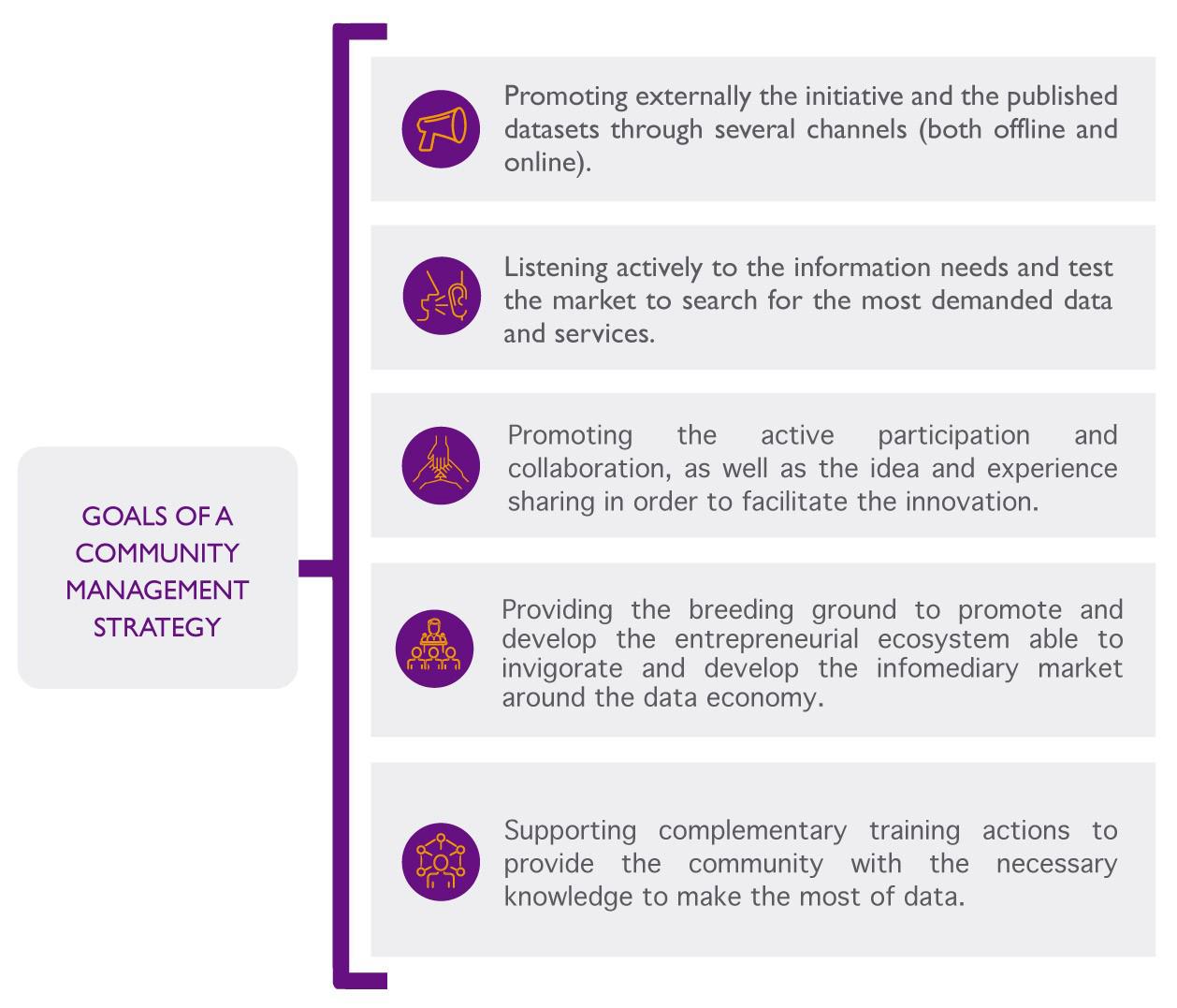Data communities to promote the reuse of public information
Fecha de la noticia: 26-07-2018

When creating an open data initiative, it is necessary to know what the expectations and challenges of the users are, as well as what potential services or products based on open data could be created through the reuse of available resources. In this way, we can adapt the data sets available in our portal to the users’ needs, which will facilitate their reuse.
With this objective, open data communities are been created, aimed at building an active and balanced ecosystem of users. These are dialogue spaces where common work formulas are promoted to improve, update and give new uses to the data offered through the catalogs, tools and services currently available.
The progress and consolidation of this kind of initiatives involves the participation of all parties and organizations involved in the cycle life of open data:
- Data providers: either public or private organizations carried out an open data initiative.
- Data users and consumers: infomediaries, startups, data professionals (such as media, researchers or the education sector), civil organizations and, in general, all kinds of reusers.
- Sectoral specialists: in order to work correctly, a data community must include specialists in different economic sectors (transport, education, tourism, meteorology, etc.), data and new technologies specialists (open data consultants and experts, open government, semantics, linked data, Big data, artificial intelligence, etc.) and transversal specialists (in areas such as economics, law, marketing, etc.).
In this ecosystem, public authorities should not limit themselves to a reactive role, but should be actively involved through the promotion and dissemination of initiatives at all levels. As we gathered in the Open Data as a tool for Smart Cities report, public authorities should have a leadership role, helping to motivate, generate commitment and guide the different activities by mobilizing the rest of users:

To carry out this work, communities can rely on different online and offline tools (such as questionnaires, interviews and working groups), which facilitate communication and continuous collaboration. CKAN, for example, offers some interesting features such as disqus or comments extensions, which allow commenting and discussing about data sets, or sharing related ideas, applications or contents. In addition, CKAN allows to share datasets on some social networks, such as Facebook and twitter.
Social networks have served as a channel to facilitate the creation of these communities, bringing together specialists from different countries with common interests. On Linkedin, for example, we find International Communities that foster collaboration and learning in a neutral environment. We also find specific groups that share their interest in specific fields, such as smart cities and urban innovation or data science.
The National Library of Spain, example of data community
In this line, in our country, the National Library of Spain is carrying out an initiative to create a space for participation and co-creation focused on the generation of new values, knowledge, products and services through the reuse of cultural heritage. With this goal, they seek to create an interdisciplinary working group to promote dialogue between researchers, digital humanists, experts in data processing and reuse, open culture professionals, experts in digital strategy, re-users communities, etc. to find common objectives and work to achieve them.
Thanks to the promotion of these participatory and open initiatives, many other added advantages will be obtained, such as: new feedback channels to improve the quality and reliability of the data; the possibility of using crowdsourcing or gamification techniques to capture or optimize new resources; or even enable public-private partnerships for the exploitation of new data in a way that is beneficial for all parties involved.
In short, open data communities are an indispensable mechanism to enrich the entire open data cycle, from the data capture and data management, to the creation of new value-products and added services.











